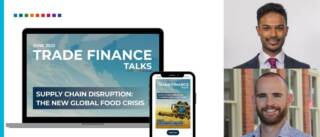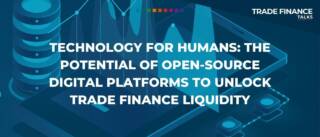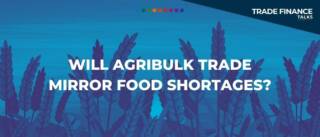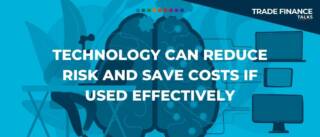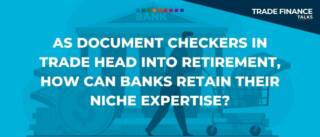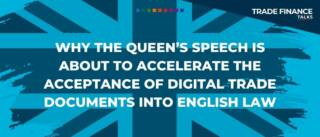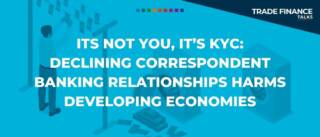The latest issue of TFG’s Trade Finance Talks, ‘Supply chain disruption: the new global food crisis’ is out now!
With technology revolutionising almost every area of business, TFG asked a number of fintech experts whether it also has a role to play in streamlining how trade finance applications are handled and processed to help unlock more trade finance liquidity.
we.trade, a blockchain-based trade finance network owned by 12 European banks and IBM, told shareholders in May that it had run out of cash.
The UN’s World Food Programme has warned that the failure to open Black Sea ports is a declaration of war on global food insecurity and will lead to famine, destabilisation of nations, and mass migration by necessity.
Why exactly have the prices of food historically been higher in Japan? TFG’s Carter Hoffman investigates…
Over the last ten years, nature dependent exports accounted for 40% of annual world trade ($7.4 trillion) – 36% of which stemmed from non-democratic regimes, as defined by the Economist Intelligence Unit’s Democracy Index.
TFG’s Carter Hoffman (CH) interviewed Talal Ghandour (TG), chief investment officer and managing director at Metito, to discuss how the recent HSBC funding is helping push toward circular water systems to resolve water shortages.
TFG was delighted to partner with BAFT for their 2022 Global Annual Meeting in Washington.
Throughout the three day event, attendees heard from many experts discussing the current state of the industry, what they learned during the past few years, where the industry is headed, and the challenges and opportunities that lie ahead.
TFG spoke to two leading trade credit risk management experts, Marian Berden and Robert Meters of Schumann on how technology has the potential to help business avoid some of the costs and stresses associated with current economic conditions.
We currently live in uncertain times, both geopolitically, and from a macroeconomic perspective. TFG asked two risk management experts for their take on how businesses can navigate through this period of economic volatility.
For decades, trade document checkers at banks have mastered the crucial, time-consuming, and somewhat niche skill of manually reviewing complex documents to ensure they meet international standards.
Accordion to the ONS latest statistics release, the twelve-month trailing inflation rate in the UK rose to 9% in April – the highest level since the current ONS data set began in 1989.
If a new trade bill is passed during the current UK parliamentary term, digital paperwork could be legalised under English Law, which could be a landmark moment for the trade and export industry.
Correspondent banks are a key part of cross-border payments facilitating the flow of trade between different jurisdictions.
 Australia
Australia Hong Kong
Hong Kong Japan
Japan Singapore
Singapore United Arab Emirates
United Arab Emirates United States
United States France
France Germany
Germany Ireland
Ireland Netherlands
Netherlands United Kingdom
United Kingdom
